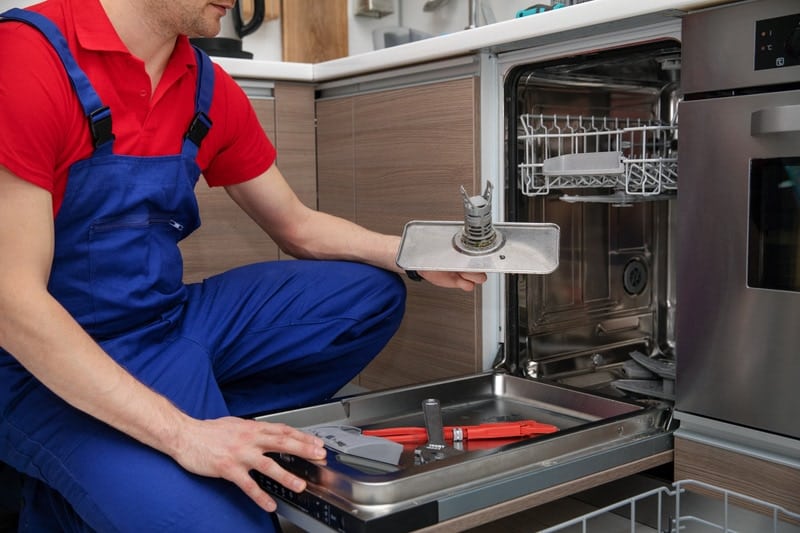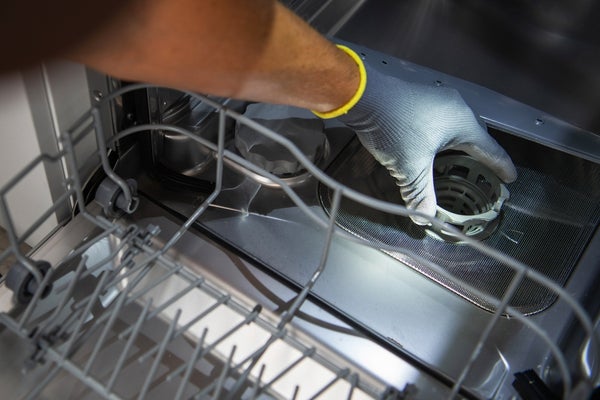The Most Typical Dish Washer Problems, and also Exactly How to Take Care of Them
The Most Typical Dish Washer Problems, and also Exactly How to Take Care of Them
Blog Article
This article following next on the subject of The Most Common Dishwasher Problems is absolutely compelling. Read it for yourself and see what you think of it.

Having your dishwasher break down or malfunction can be a big deal as well as trigger some pain in the house. Dish washers are equipments that we make use of to tidy dishes and cutleries automatically to save us the stress of manually doing it.
Like every other machine that relieves human effort, dishwashing machines can break down and develop some fault eventually in time. There are numerous faults your dishwashing machine might establish, and also while some of them can be resolved by replacing some parts or fixing them, other more severe defects will certainly call for that you obtain a brand-new dishwashing machine.
This post will recognize a couple of common faults your dish washer can create to prevent its total efficiency and also just how these mistakes can be fixed.
Typical Faults
Typical dishwashing machine faults could range from minor to major ones. Depending on the extent, you will certainly either require the solutions of specialist plumbing professionals to deal with or change it.
Several of one of the most typical faults include:
Leaky Dishwasher
This is probably the most day-to-day dish washer trouble, as well as fortunately is that it is simple to determine. Leaks occur as a result of numerous factors, as well as the leaks can ruin your kitchen area. Typical reasons for dishwasher leakages consist of;
Bad-Smelling Dishwasher
This is an additional common dish washer issue, and also it is generally caused by food debris or oil remaining in the machine. In this situation, look for these fragments, take them out and do the recipes without any recipes inside the machine. Laundry the filter thoroughly. That will aid eliminate the negative smell. Make certain that you remove every food fragment from your dishes prior to moving it to the device in the future.
Lack of ability to Drain
Occasionally you may observe a large quantity of water left in your bathtub after a wash. That is possibly a drainage issue. You can either examine the drain pipe for problems or obstructions. When doubtful, contact an expert to have it examined and taken care of.
Does unclean correctly
If your recipes and flatwares come out of the dishwashing machine and also still look dirty or unclean, your spray arms might be a problem. Oftentimes, the spray arms can get obstructed, and it will need a fast clean or a substitute to work effectively once again.
Final thought
A few of these usual dish washer mistakes can be fixed easily at home, but sometimes, the faults could be massive as well as might need the focus of specialists. If you stay in Rochester, Syracuse, and also various other parts of America, allowed the specialists effectively detect what could be wrong with your dishwasher as well as proffer a service.
We likewise set up dish washers if you simply acquired a brand-new one or intend to replace your own. With our many years of experience in the market, we make sure to provide you the very best feasible solutions.
Dishwasher Won’t Drain? 8 Steps to Fix It
Run the Disposal
A full garbage disposal or an air gap in a connecting hose can prevent water from properly draining out of the dishwasher. Simply running the disposal for about 30 seconds may fix the issue.
Check for Blockages
Check the bottom of the dishwasher to make sure that an item or pieces of food haven't fallen from the rack to block the water flow.
Load the Dishwasher Correctly
Make sure you’re loading the dishwasher correctly. Read the manufacturers’ instructions or owner’s manual for tips and directions on how to load dishes for best results.
Clean or Change the Filter
You may have a clogged dishwasher filter that’s preventing water from draining. Many homeowners don’t realize that dishwasher filters need to be cleaned regularly. Check your owner’s manual to see where the filter is located on your dishwasher, and for instructions on how and when to clean it. For many dishwashers, the filter can be found on the inside bottom of the appliance.
Inspect the Drain Hose
Check the drain hose connecting to the sink and garbage disposal. Straighten any kinks that you may see, which could be causing the problem. Blow through the hose or poke a wire hanger through to check for clogs. Make sure the hose seal is tight, too.
Try Vinegar and Baking Soda
Mix together about one cup each of baking soda and vinegar and pour the mixture into the standing water at the bottom of the dishwasher. Leave for about 20 minutes. If the water is draining or starting to drain at that time, rinse with hot water and then run the dishwasher’s rinse cycle. That may be enough to help loosen any clogs or debris that are preventing the dishwasher from draining properly.
Listen to Your Machine While It's Running
Listen to your dishwasher while it’s running a cycle. If it doesn’t make the usual operating sounds, particularly if it’s making a humming or clicking noise, the drain pump and motor may need replacing. If this occurs, it may be time to call a professional for help.
https://www.ahs.com/home-matters/repair-maintenance/how-to-fix-a-dishwasher-that-is-not-draining/

I was made aware of that write-up on The Most Common Dishwasher Problems through a good friend on a different web blog. Do you know about another individual who is involved in How to Troubleshoot & Repair a Dishwasher? Be sure share it. Thanks for taking the time to read it.
Get Quote Now Report this page